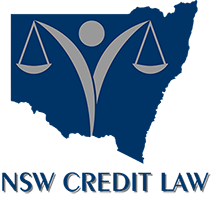Protecting Your Business: The Importance of Payment, Default, and Indemnity Terms in Debt Recovery
Introduction
In the world of business, timely payments are crucial for maintaining cash flow and ensuring operational stability. Understanding payment terms, default provisions, and indemnity clauses can be vital in safeguarding your interests against debtors.
Importance of Clear Payment Terms
Define Expectations: Clearly outline when payments are due. Specify payment methods and any applicable late fees. This clarity helps set expectations and minimises disputes.
Encourage Timeliness: Consider offering discounts for early payments or penalties for late payments to motivate timely transactions.

Default Terms: Protecting Your Interests
Definition of Default: Establish what constitutes a default (e.g., late payments, non-payment). This allows you to act swiftly when a debtor fails to meet their obligations.
Remedies for Default: Include provisions that detail the actions you can take in the event of a default, such as charging interest, initiating recovery or legal procedures, or terminating the contract. This enhances your leverage in negotiations.
Indemnity Clauses: Providing Additional Security
Understanding Indemnity: An indemnity clause protects your business from financial loss due to the debtor’s actions or inactions. It ensures that if a debtor fails to pay, they are responsible for covering your legal costs and any other related expenses.
Drafting Effective Indemnity Clauses: Ensure that these clauses are clearly written and specific to the obligations of the debtor. This specificity can provide a strong basis for recovering costs if a dispute arises.
NSW Credit Law Recommended Default and Indemnity Clauses
You should regularly consult with legal professionals to ensure your contracts are robust and compliant with current laws. Lawyers can help customise terms to suit your specific business needs.
Enforcement: In the event of a default, having well-drafted terms can facilitate more effective legal action, should enforcement action become necessary.
As well as clear payment terms, to ensure that NSW Credit Law can recover the maximum amount for you when we are instructed in your matters, we suggest including the following default and indemnity terms in your credit applications, terms of trade and/or on your invoices:
- You indemnify us for debt recovery costs incurred in the event of an overdue account being referred to an external debt collection agency due to a default in your obligation to pay invoices pursuant to our credit and payment terms.
- If the debt collection agency charges commission on a contingency basis you shall be liable to pay, as a liquidated debt, the commission payable by us to the debt collection agency.
- The debt recovery costs recoverable will be the commission percentage charged by the debt collection agency including GST, as if the agency has achieved one hundred per cent recovery of the outstanding debt, plus any other debt recovery costs incurred.
- The debt recovery costs will be applied to your account with us and will become payable by you as a liquidated debt from the date that the overdue account is referred to the debt collection agency.
- If the debt collection agency refers the overdue account to a lawyer for litigation you shall also be liable to pay the charges reasonably made or claimed by the lawyer for legal costs and disbursements on an indemnity basis.
Statutory legal costs and interest are recoverable in legal proceedings without the need for the above clauses, but the above clauses would ensure that we can recover the maximum amount for you when we act on your behalf in debt recovery matters.
Of course, it is imperative to seek some legal advice that the above clauses complement the existing terms and conditions within your agreements.
The Importance of Payment, Default, and Indemnity Terms in Debt Collection
Here’s why these terms are essential:
Clear Payment Terms
Including explicit payment terms in credit applications and terms of trade helps establish clear expectations between the parties involved. These terms should specify:
Due Dates: When payments are expected. As well as specifying payment terms, for instance 14 days from date of invoice, specify on your invoices the exact date that the invoice is due.
Accepted Payment Methods: Make paying as easy as possible for your clients. Include all payment methods such as bank transfers, credit cards, etc.
Late Payment Penalties: Fees and interest that may apply if payments are not made on time.
Having these terms in place not only informs clients of their obligations but also strengthens your position if a payment dispute arises.
Default Clauses
Default clauses outline the consequences if a client fails to meet their payment obligations.
Key elements may include:
Definition of Default: Clearly stating what constitutes a default, such as late payments or failure to adhere to agreed payment terms.
Remedies Available: Options available to you in case of default, such as suspension of services, interest on overdue amounts, debt recovery or legal action.
These clauses provide you with a roadmap for managing defaults, ensuring you can take swift enforcement action when necessary.
Indemnity Provisions
Indemnity clauses protect your business from financial loss arising from a client’s failure to meet their obligations. By including indemnity provisions, you can:
Shift Risk: Require clients to indemnify your business against costs related to non-payment, including legal fees and collection costs.
Encourage Compliance: Knowing they may face financial repercussions can motivate clients to fulfil their payment obligations.
Indemnity terms can significantly mitigate the risks associated with extending credit or providing services or goods on credit terms.
Inclusion in Invoices
In addition to credit applications and terms of trade, it’s crucial to reinforce these terms on invoices. This can serve as a reminder to clients every time they receive an invoice of their payment obligations and the consequences of default.
Including:
Payment Terms: Clearly restating due dates and accepted payment methods.
Default and Indemnity Clauses: A summary or reference to more detailed terms in your terms of trade. Or a link to more detailed terms on your website.
This practice not only enhances clarity but also strengthens your legal position should the need for collection arise.
Conclusion
Incorporating comprehensive payment, default, and indemnity terms into your credit applications, terms of trade, and invoices is essential for effective debt collection and legal cost management.
These provisions provide clarity, set expectations, and protect your business’s financial interests. If you haven’t already, consider reviewing your current documentation to ensure these crucial terms are included and that they fit with all other terms and clauses within your credit applications, terms of trade and agreements.
NSW Credit Law can review credit applications, terms of trade and agreements to ensure that you have the most relevant and adequate protections in the case of breach of contract due to default on payment terms.

Disclaimer: When researching and drafting this article we may use an AI advanced language model amongst other sources. It is intended for general informational purposes and should not be used as a substitute for professional advice. While every effort has been made to ensure the accuracy and reliability of the information provided, we cannot guarantee its completeness, timeliness, or appropriateness for any particular purpose. Usage of this information is at the reader’s own risk. We are not liable for any errors, omissions, or results that may be obtained from the use of this information. Always consult with a qualified professional before making any decisions based on the content of this article. For legal advice please contact Paul Thorndike on 0429 008 247 or at paulthorndike@nswcreditlaw.com.au

